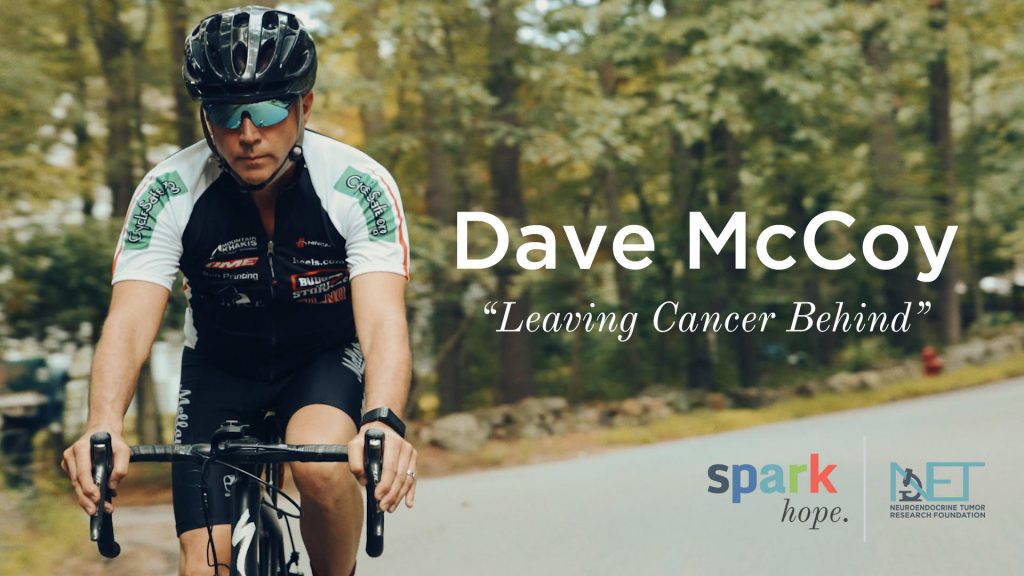The Emotions of Living with Neuroendocrine Tumors
Home » For Patients old » Living with NETs » Emotions
 People face many emotions when living with neuroendocrine tumors. Sixty percent of patients said the disease had an impact on their emotional health.2,13 The upheaval may seem never-ending. It can be a marathon of tests, treatments, symptoms, and syndromes. Most patients experience symptoms daily.13 Emotions can change from day to day, week to week. This can be true for newly diagnosed patients or survivors of many years.
People face many emotions when living with neuroendocrine tumors. Sixty percent of patients said the disease had an impact on their emotional health.2,13 The upheaval may seem never-ending. It can be a marathon of tests, treatments, symptoms, and syndromes. Most patients experience symptoms daily.13 Emotions can change from day to day, week to week. This can be true for newly diagnosed patients or survivors of many years.
Those with cancer may feel:
- Overwhelmed
- Denial
- Anger
- Fear and Worry
- Hope
- Stress and Anxiety
- Sadness and Depression
- Guilt
- Loneliness
- Gratitude
Ways to Cope with Your Emotions
Express your emotions
Share what you are feeling with those you trust. Talk with your family and friends about your emotions. If you have a faith community, consider reaching out to a faith leader for support. One in five NET patients seeks counseling for the emotional aspects of the illness.2 Your care team may be able to suggest names of counselors with experience treating cancer survivors. Many survivors benefit from attending neuroendocrine tumor support groups where they can share concerns and solutions with others facing the same cancer.
Search for a support group near you
Join an online NET discussion group
Check out patient advocacy groups
If you aren’t yet ready to talk, some people keep a journal of their thoughts and feelings. Any creative art, like painting, woodworking, music, film, poetry, or photography, may help to identify and understand feelings. You don’t have to be an experienced artist.42
- Draw a self-portrait
- Make a family tree
- Paint a T-shirt
- Make a collage with pictures you cut out of a magazine
Keep learning
Sometimes fear and worry take over. It often helps to be informed. Most people feel better when they learn the facts. They feel less afraid and know what to expect. Learn as much as you can about neuroendocrine cancer. Take an active part in your care.
Find outlets for relaxation
Anxiety, fear, and worry can tighten muscles and make the mind race. Find ways to let go of tension. Meditation, guided imagery, and relaxation exercises may help.34
See how yoga and meditation help Stacie cope with NETs.
Be as active as you can
Getting out of the house and doing something can help you focus on other things besides cancer and the worries it brings. Exercise or gentle yoga and stretching can help too.
See how cycling helped Dave come back from NET surgery.
Get involved
Some cancer survivors find fulfillment by volunteering for a worthy cause. Community involvement can offer social, professional, and emotional benefits. Helping others can be very uplifting. NETRF has a volunteer program for those that want to help advance NET research.
Look for the Positive
Sometimes this means looking for the good even in a bad time or trying to be hopeful instead of thinking the worst. Try to use your energy to focus on wellness and what you can do now to stay as healthy as possible.
David focuses his mind, body, and soul on finding joy.
Steve Pantilat, MD, University of California, San Francisco
Living well with serious illness.
Kasia, a yoga instructor for Springboard Beyond Cancer
Four breathing exercises that can help reduce stress.

A Better State of Mind through Mindfulness
Learn how mindfulness can help you cope with the uncertainty of neuroendocrine cancer and other challenges to find greater peace and joy.

Living with NETs During COVID-19: Your Health and Well-being
Recognizing the mental and emotional stresses of living with cancer during COVID-19 and limiting the impact on your thoughts, behavior, and mood.

The Healing Ability of Music
Tom Bajoras, a West Coast musician is taking advantage of gaps in his schedule to compose music to support his and your journey with NETs.

Amanda Woods, ACSM/ACS, CET, ASCM EP-C, and Maigenete Mengesha, PhD
Physical and Mental Wellness in NETs. Watch Video
Carolyn West, PhD, University of Massachusetts Medical School
Basic principles of mindfulness-based stress reduction. Watch Video2Singh S, Granberg D, Wolin E, et al. Patient-reported burden of a neuroendocrine tumor (NET) diagnosis: results from the first global survey of patients with NETs. J Glob Oncol. 2016;2(1):43-53.
13National Cancer Institute. Pheochromocytoma and paraganglioma treatment (PDQ®)-patient version. 2017. https://www.cancer.gov/types/pheochromocytoma/patient/pheochromocytoma-treatment-pdq. Accessed October 23, 2018.
34Cives, M., Strosberg, J.R. (2018). Gastroenteropancreatic Neuroendocrine Tumors. CA Cancer J Clinical, 1-17.



